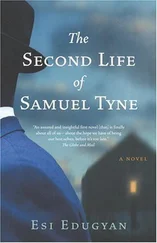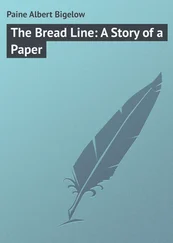MERIWETHER'S BEND
One-fourth less 3 3 3 Depth of water. One-quarter less than three fathoms.
—run shape of upper bar and go into the low place in the willows about 200 (ft.) lower down than last year.
OUTSIDE OF MONTEZUMA
Six or eight feet more water. Shape bar till high timber on towhead gets nearly even with low willows. Then hold a little open on right of low willows—run 'em close if you want to, but come out 200 yards when you get nearly to head of towhead.
The average mind would not hold a single one of these notes ten seconds, yet by the time he reached St. Louis he had set down pages that to-day make one's head weary even to contemplate. And those long four-hour gaps where he had been asleep—they are still there; and now, after nearly sixty years, the old heartache is still in them. He must have bought a new book for the next trip and laid this one away.
To the new "cub" it seemed a long way to St. Louis that first trip, but in the end it was rather grand to come steaming up to the big, busy city, with its thronging waterfront flanked with a solid mile of steamboats, and to nose one's way to a place in that stately line.
At St. Louis, Sam borrowed from his brother-in-law the one hundred dollars he had agreed to pay, and so closed his contract with Bixby. A few days later his chief was engaged to go on a very grand boat indeed—a "sumptuous temple," he tells us, all brass and inlay, with a pilot-house so far above the water that he seemed perched on a mountain. This part of learning the river was worth while; and when he found that the regiment of natty servants respectfully "sir'd" him, his happiness was complete.
But he was in the depths again, presently, for when they started down the river and he began to take account of his knowledge, he found that he had none. Everything had changed—that is, he was seeing it all from the other direction. What with the four-hour gaps and this transformation, he was lost completely.
How could the easy-going, dreamy, unpractical man whom the world knew as Mark Twain ever have persisted against discouragement like that to acquire the vast, the absolute, limitless store of information necessary to Mississippi piloting? The answer is that he loved the river, the picturesqueness and poetry of a steamboat, the ease and glory of a pilot's life; and then, in spite of his own later claims to the contrary, Samuel Clemens, boy and man, in the work suited to his tastes and gifts, was the most industrious of persons. Work of the other sort he avoided, overlooked, refused to recognize, but never any labor for which he was qualified by his talents or training. Piloting suited him exactly, and he proved an apt pupil.
Horace Bixby said to the writer of this memoir: "Sam was always good-natured, and he had a natural taste for the river. He had a fine memory and never forgot what I told him."
Yet there must have been hard places all along, for to learn every crook and turn and stump and snag and bluff and bar and sounding of that twelve hundred miles of mighty, shifting water was a gigantic task. Mark Twain tells us how, when he was getting along pretty well, his chief one day turned on him suddenly with this "settler":
"What is the shape of Walnut Bend?"
He might as well have asked me my grandmother's opinion of protoplasm. I replied respectfully and said I didn't know it had any particular shape. My gun-powdery chief went off with a bang, of course, and then went on loading and firing until he was out of adjectives ….I waited. By and by he said:
"My boy, you've got to know the shape of the river perfectly. It is all that is left to steer by on a very dark night. Everything else is blotted out and gone. But mind you, it hasn't got the same shape in the night that it has in the daytime."
"How on earth am I going to learn it, then?"
"How do you follow a hall at home in the dark? Because you know the shape of it. You can't see it."
"Do you mean to say that I've got to know all the million trifling variations of shape in the banks of this interminable river as well as I know the shape of the front hall at home?"
"On my honor, you've got to know them better than any man ever did know the shapes of the halls in his own house."
"I wish I was dead!"
But the reader must turn to Chapter VIII of "Life on the Mississippi" and read, or reread, the pages which follow this extract—nothing can better convey the difficulties of piloting. That Samuel Clemens had the courage to continue is the best proof, not only of his great love of the river, but of that splendid gift of resolution that one rarely fails to find in men of the foremost rank.
Piloting was only a part of Sam Clemens's education on the Mississippi. He learned as much of the reefs and shallows of human nature as of the river-bed. In one place he writes:
Конец ознакомительного фрагмента.
Текст предоставлен ООО «ЛитРес».
Прочитайте эту книгу целиком, купив полную легальную версию на ЛитРес.
Безопасно оплатить книгу можно банковской картой Visa, MasterCard, Maestro, со счета мобильного телефона, с платежного терминала, в салоне МТС или Связной, через PayPal, WebMoney, Яндекс.Деньги, QIWI Кошелек, бонусными картами или другим удобным Вам способом.
John Briggs died in 1907; earlier in the same year the writer of this memoir spent an afternoon with him and obtained from him most of the material for this chapter.
Horace Bixby lived until 1912 and remained at the wheel until within a short time of his death, in his eighty-seventh year. The writer of this memoir visited him in 1910 and took down from his dictation the dialogue that follows.
Depth of water. One-quarter less than three fathoms.












